Podcast: Play in new window | Download () | Embed
Join the Neighborhood RSS
Do you know how to play with your baby? Probably so. What about playing with your newborn baby? Turns out, those precious and sweet newborn babies aren’t just for staring at (and keeping you awake at night)- you can encourage your baby’s growth and development through those early years of life from DAY ONE through play!
Like we talked about in this post, play is important because it’s developmental. We transition through stages of play as we develop; starting at day one. In this post, we are going to talk about those first two stages: Unoccupied Play (birth – 3 months) and Solitary Play (birth-2 years). Sometimes these two stages are lumped into one. However I think they are individually important.
What is Unoccupied Play?
Unoccupied Play is the first of the different stages of play from birth to 3 months old. During this stage, babies begin to explore how their bodies work through movement of their arms, legs, feet, and hands.
What does infant play look like? Stretching, reaching, grabbing, mouthing, looking- all the movements.
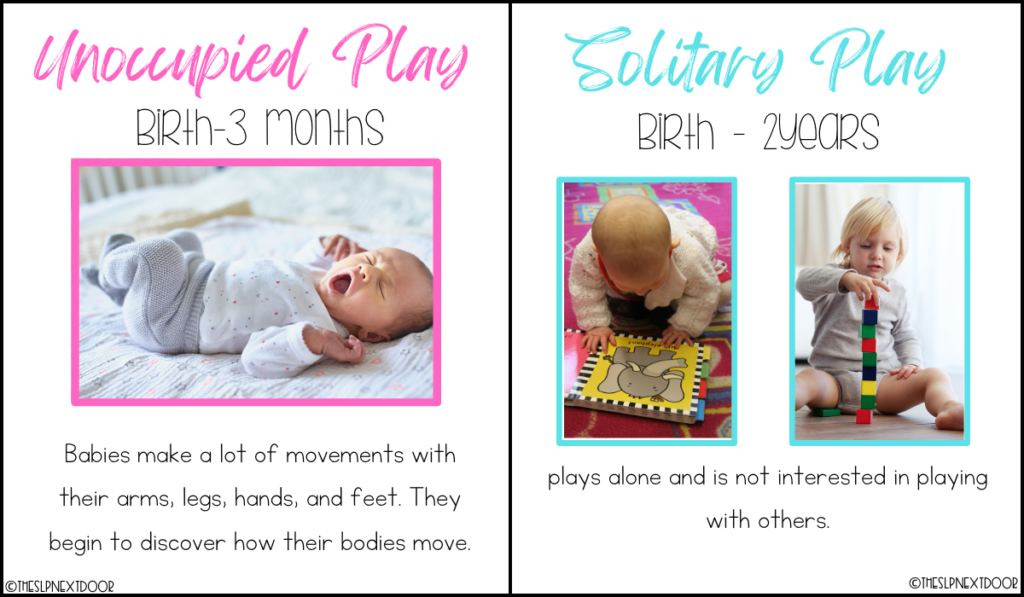
What is Solitary Play?
Solitary Play occurs from birth to 2 years old. In this stage, babies play alone and do not interact with others. This stage encourages all kinds of growth and development. Birth to 2 years old development is massive- so this stage covers a lot. We go from being unable to do just about anything without help to walking and talking without much assistance. That’s huuuge.
You can play with your baby and help them reach developmental milestones through a variety of toys and interactions.
Play Based Speech Therapy Activities for Babies
When it comes to planning play-based speech therapy activities for babies, keep these developmental play stages in mind. Understanding how a baby should play and the early years developmental milestones they will progress through can help manage your expectations and, in turn, encourage progress. Initially, present baby with a few toys or puzzles and just watch their interactions. Follow their lead. Narrate their activities and provide prompting or cues when needed. Just play!
Like I’ve said before- progress is in the minor development when it comes to the baby and toddler population. Here’s an example: initial visit: baby picks up puzzle piece and immediately puts it into their mouth and does not put it back on puzzle board- a few sessions later baby picks up puzzle piece, still mouths it, but then places it back on the board. Even if the placement is not correct [which, you wouldn’t expect it to be]- this is considered progress because they are beginning to understand how the puzzle works.
Toys for Infants and Babies
You can encourage newborn development by providing baby with items such as sock rattles or teethers, activity mats, tummy time activities, sensory exploring toys, and high contrast books. It’s also important to just interact with your baby; talk to your baby, hold your baby’s hand, and encourage their body movements.
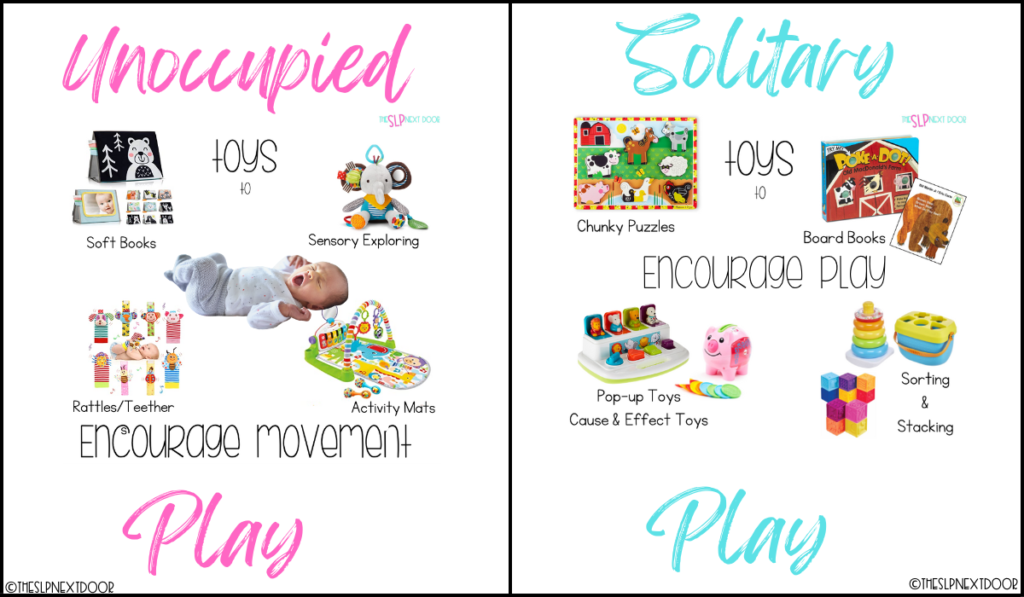
Developmental toys for solitary play might include: chunky puzzles, board books, sorting and stacking activities, pop-up toys, and cause/effect items. This stage of developmental play is important to a baby’s cognitive development because it requires a lot of problem solving. Solitary play also plays a big role in language development.
Have you snagged your FREE stages of play printable handout? If not- what are you waiting for?! It’s perfect for providing a quick glance at the different stages of play for providers, educators, and parents!

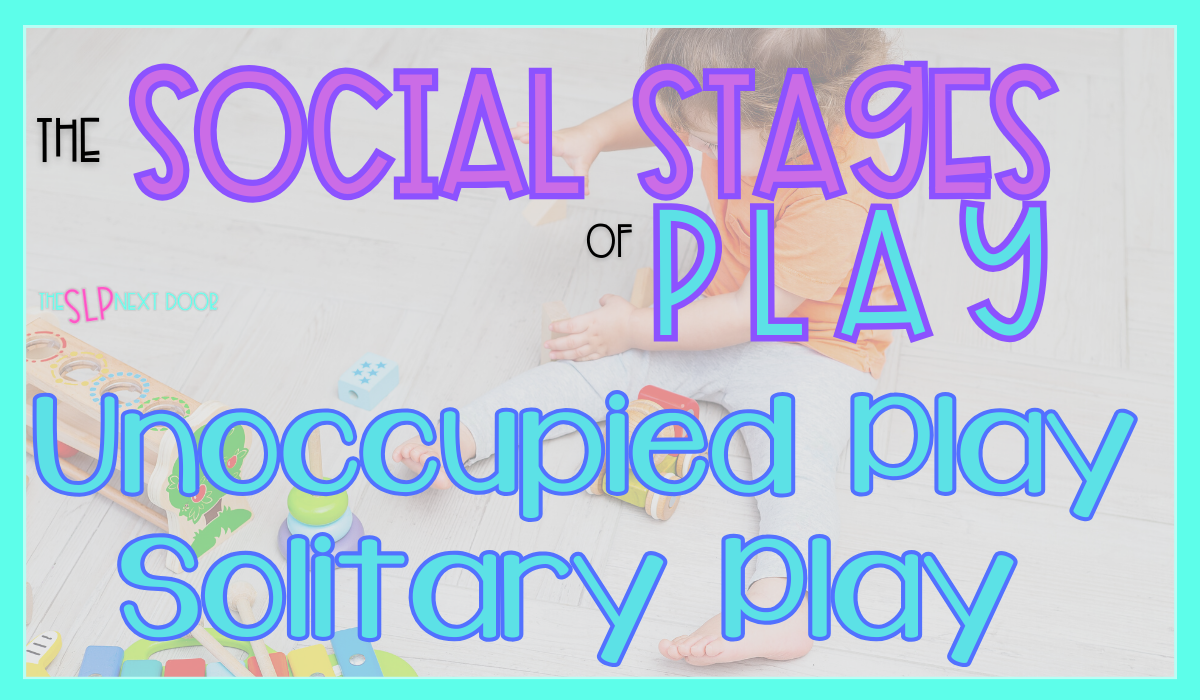
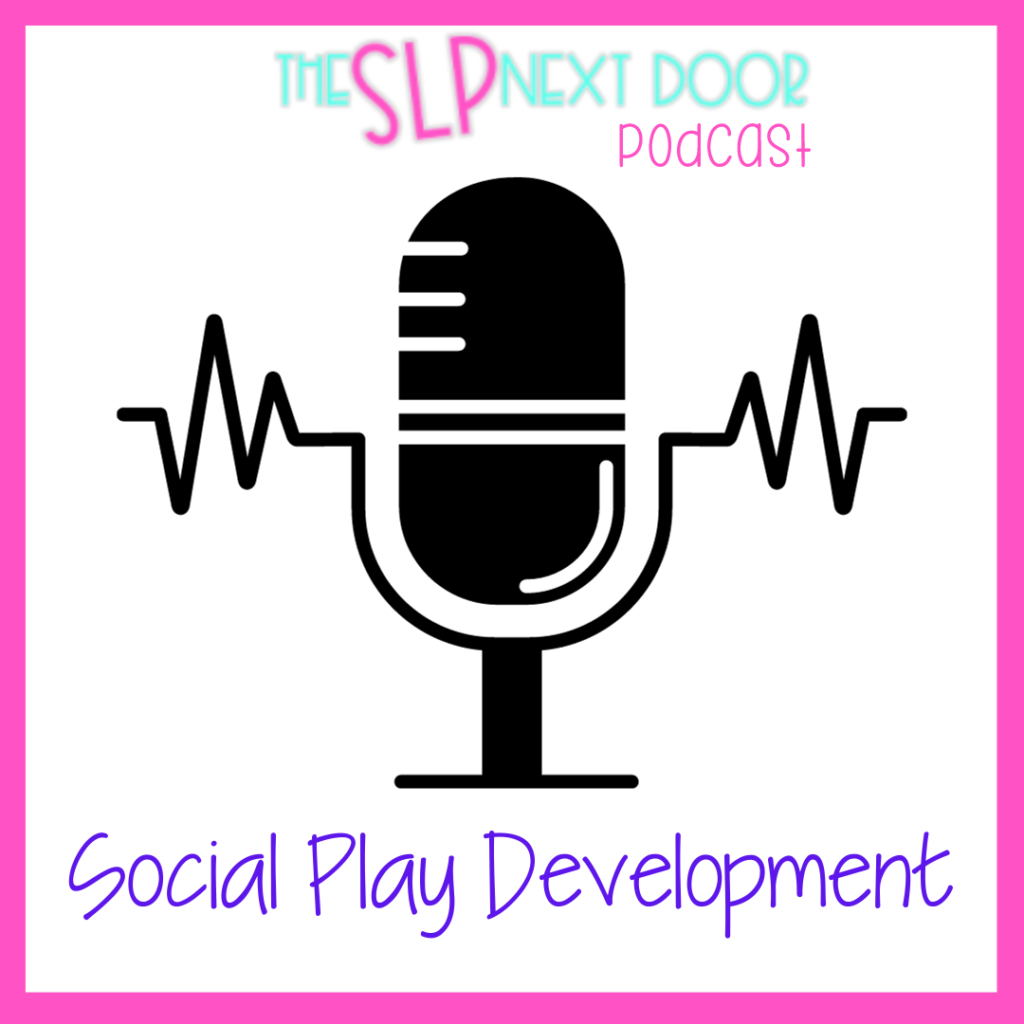
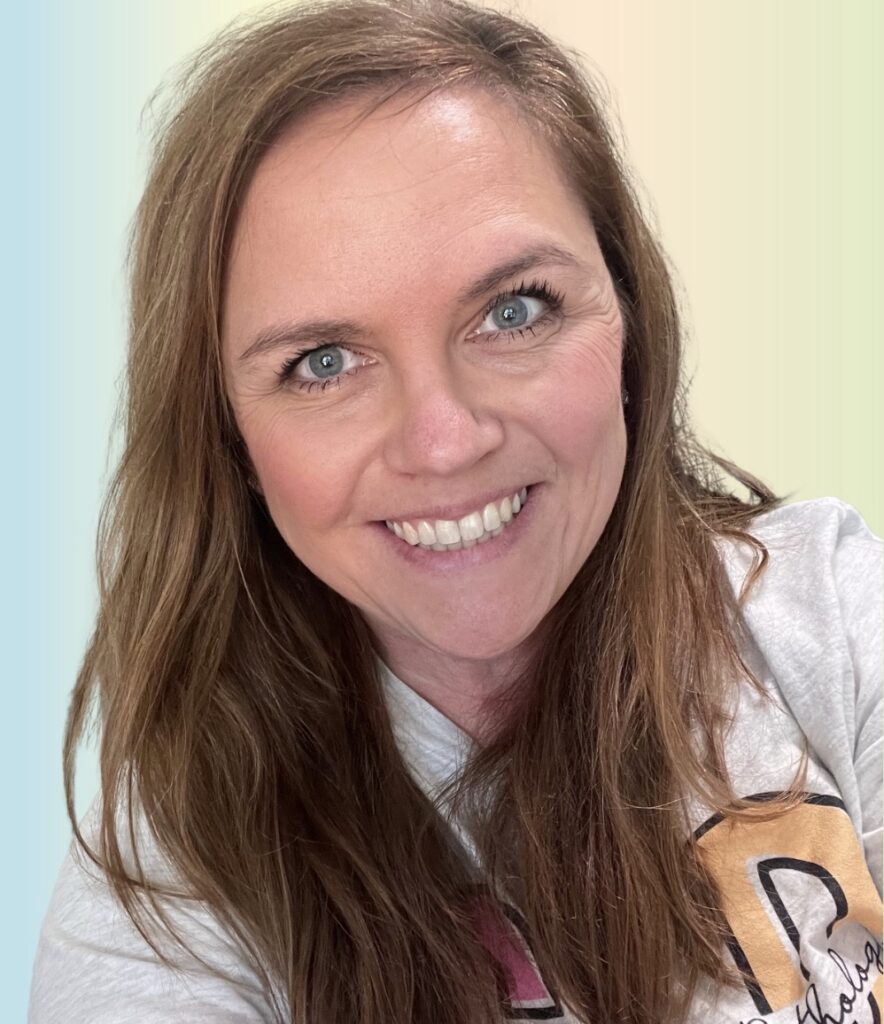
3 Responses